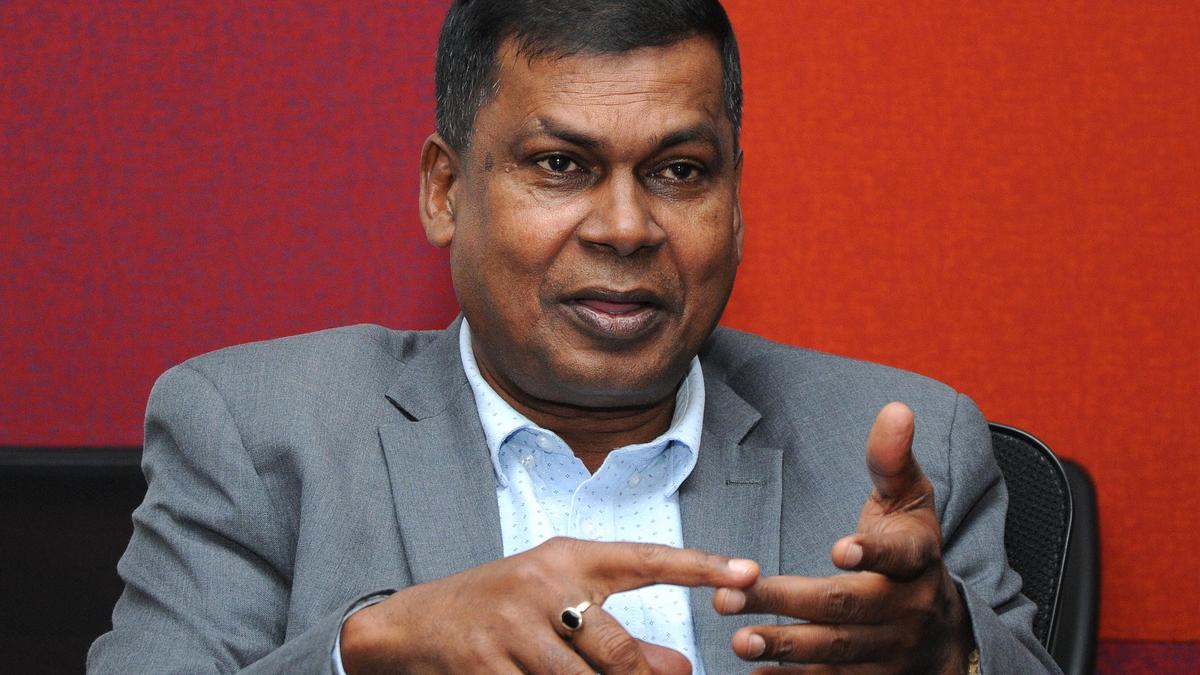
Lord Ram’s teachings of justice and non-discrimination gave solace and inspiration to indentured labourers in Fiji: Deputy Prime Minister Biman Prasad
The Hindu
Fiji’s Deputy Prime Minister Biman Prasad said on Monday that the struggles and teachings of Lord Ram in exile as narrated by the Ramayana gave “solace and inspiration” to the girmitiyas or Indian indentured labourers of the 19th century who carried copies of the epic with them while travelling in ships. The Fijians of Indian origin, especially of Hindu background, got rid of the caste system and established a more inclusive society because they were united to fight the “brutal” system of indentured labour.
The struggles and teachings of Lord Ram in exile as narrated by the Ramayana gave “solace and inspiration” to the girmitiyas or Indian indentured labourers of the 19th century who carried copies of the epic with them while travelling in ships, Fiji’s Deputy Prime Minister Biman Prasad said on Monday. Speaking to The Hindu in an exclusive chat, Mr. Prasad who has the additional ministerial portfolio of finance, strategic planning, national development and statistics, said the Fijians of Indian origin, especially of Hindu background, got rid of the caste system and established a more inclusive society because they were united to fight the “brutal” system of indentured labour.
“As indentured labourers during the years of hardship, Fijians of Indian origin, especially of Hindu background, got solace and inspiration from the Ramayana and the life of Lord Ram. The girmitiyas identified with the suffering of Lord Ram in forest and his return to Ayodhya after exile, as we read in the Ramayana, reflects the psychological yearning of the Indian diaspora in Fiji which is proud of its Fijian identity while acknowledging their origins,” said Mr. Prasad explaining that the Ramayana also became a psychological connector between the modern day Fijians and their land of origin that their ancestors left behind in the late 19th century.
Mr. Prasad said Indians of Hindu, Muslim and Christian backgrounds went to Fiji carrying their holy texts and they went on to establish temples and Ramayana mandalis, mosques, markaz and churches and set up schools for their children that the colonial administration was unwilling to support. “Almost all the schools of Fiji were started by the Hindus, Muslims and Christians who came from India and we grew into a secular society because we understood that secularism does not mean absence of religion but giving equal space for everyone to practice their faith and as a result Diwali is celebrated by all citizens of my country,” said Mr. Prasad.
Mr. Prasad is on a five-day visit to India during which he will meet with External Affairs Minister S. Jaishankar and travel to Gujarat, Goa and Ayodhya where he is scheduled to attend a religious ceremony at the newly consecrated Shri Ram temple. He said that visiting Ayodhya as a pilgrimage had a very special meaning to the Fijians as it symbolises the return of the disinherited people to claim what rightfully belongs to them. The Fijians like Mr. Prasad were taught about the Ramayana by family and community members as passed on over the generations. “Every Fijian especially Hindus, knows the symbolic importance of Ayodhya and the teaching of non-discrimination and justice as exemplified in the life of Lord Ram as our ancestors not only sang the Ramayana they also established Ramayana mandalis that carried forward the teachings through the generations,” Mr. Prasad said.
He said that the Ramayana mandalis were a unique community-driven practice that had survived in Fiji since they were started by the girmitiyas. “Depending on our work schedule, every Tuesday and Friday, Hindus in Fiji meet at our Ramayana mandalis. We have hundreds of Ramayana mandalis in Fiji and these sessions are supported by dholak, tabla and other musical instruments,” Mr. Prasad said, presenting a unique diaspora tradition.
The Fijians of Indian background had a sense of yearning for India as they wanted to retain that special bond with the country while they were staunch believers in their Fijian identity based on non-discrimination on caste or religious basis. “While travelling in ship, Indian men and women became ‘jahaji bhais’ (ship brothers) and ‘jahaji bahens’ (ships sisters) and caste and religion were no longer the point of reference for the Indians who came as indentured labourers as they were united in fighting a brutal unjust system,” Mr. Prasad said.
Elimination of the caste system within the Indian-origin Fijians was an “evolution” of the Hindus in the island nation that they built in Fiji and which as a result became more equitable, he said.

The girl, who was admitted to Aster CMI Hospital with alarming breathlessness and significant pallor, was diagnosed with Wegener’s Granulomatosis (now known as Granulomatosis with Polyangiitis or GPA), a rare autoimmune condition that causes spontaneous bleeding in the lungs, leading to acute respiratory failure.

ACB files case against IPS officer N. Sanjay in Andhra Pradesh. The official is accused of manipulating the tender processes for awarding contract for development and maintenance of AGNI-NOC portal, and conducting awareness meetings for SC/STs. It is alleged that the total value of properties stolen, or involved in the case is estimated at ₹1,75,86,600.









